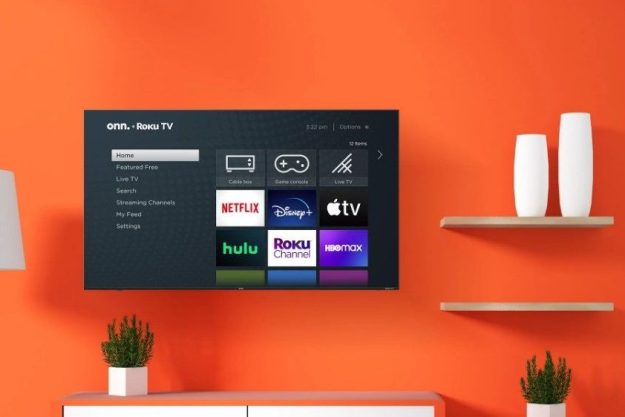
If you don’t believe the proposed Comcast/Time Warner merger will make Comcast an even bigger threat to net neutrality, you probably haven’t heard the whole story. As Comcast attempted to lay out the benefits of the $45.2 billion merger yesterday before Congress – a deal which would corral up to 40 percent of all U.S. Internet subscribers under one umbrella – the CEO of another powerful Internet player, Cogent’s Dave Schaeffer, put in a tenacious argument as to why the merger could be extremely dangerous.
His argument: Comcast is already a bully, and letting it merge with Time Warner will just give it more weight to throw around.
It all goes back to the politics of pipes – the unseen ones that route content from thousands of miles away all the way down the cable in your yard, into your living room and onto your screen. Comcast may own the pipes in your neighborhood, but it doesn’t own the ones all over the country – those belong to backbone providers like Cogent. While you might expect Comcast to have to pay to use those backbones, it has actually been trying to reverse the tables and extract cash from two of them: Cogent and Level 3. Level 3 reportedly already caved to Comcast, but Cogent refuses to co-operate.
“Comcast does not operate a global network. In fact, it should be buying connectivity to the global Internet”
Schaefer’s assertion that Comcast “does not operate a global network” has to do with the fact that the company is not what is considered a Tier 1 Network, such as Cogent, which has peering agreements with other Tier 1’s to help create the fundamental infrastructure of the Internet.
Basically, a Tier 1 network is a backbone service that can reach every other network on the Web without the need to pay for transit. Comcast doesn’t have that kind of reach, but even if it did, Tier 1 providers generally don’t pay to exchange information with each other. The free exchange of transit is what helps make the World Wide Web, well, world wide. And that general agreement between those with the biggest reach helps keep things even for all parties online so that services can connect to anyone, anywhere.

But Comcast is so big, and holds so many subscribers, it is able to extract payment from virtually any service that wants access to its cache of customers. That includes Level 3 and Netflix. Netflix recently agreed to make a deal with Comcast — and Verizon as well — when its streaming service slowed down to a near halt for its customers who subscribe to those ISPs. A similar deal is reportedly in the works with AT&T. Netflix reluctantly made those deals for direct connection to Comcast and Verizon in an effort to alleviate the streaming speed issues. But the plot gets even more insidious.
Cogent and Level 3 have recently accused several ISPs of deliberately slowing video traffic for the past year, in a direct effort to extract cash from services like Netflix and Tier 1 networks alike. The companies assert that large ISPs like Comcast and AT&T have simply refused to upgrade their own infrastructure at the same rate as Tier 1 services, in effect, blackmailing services to pay up, and worse, using their own Internet subscribers as hostages. The ISPs wait for fees to roll in, while their own subscribers deal with slower streaming speeds from their favorite sites.
Netflix’s own speed Index reports tell the tale, showing Comcast subscribers whose streaming speeds went down in recent months, then popped back up after money changed hands and Netflix began circumventing Level 3 and Cogent to connect to Comcast directly.
Not surprisingly, Comcast takes issue with Schaeffer’s account. A joint written statement by Comcast’s David Cohen and Time Warner’s Robert Marcus took issue with Schaeffer’s assessment of the merger’s dangers, painting Netflix’s high-volume service as a special case.
“Importantly, no content provider is ever compelled to interconnect directly with Comcast’s or TWC’s ISP networks,” the statement said. “The overwhelming majority of content from across the globe comes into Comcast’s ISP network over its settlement-free connections with its peers, without the content provider having any direct relationship with Comcast. Those connections are always an option for every content provider, and they are always open — in fact, they are the lifeblood of Comcast’s Internet business because they are also how Comcast gets its customers’ content to and from the rest of the world.”
Just how much more powerful would Comcast become by acquiring Time Warner, and cornering the ISP market even further?
Cogent certainly has its own reasons to stop Comcast in its tracks, namely the cash it could lose as streaming video companies like Netflix make direct deals with ISPs and no longer pay it for transit. But if the rumors are true, and ISPs are already throttling video to extract money from a host of services, letting Comcast balloon even further seems like a pretty bad move.
With net neutrality surfacing as a hot-button issue lately, advocates are looking to the FCC’s recent proposals as a sort of Internet doomsday. But if the throttling rumors are true, the monster may already be inside the door. Cogent’s David Schaeffer just doesn’t want that monster to get any bigger.

